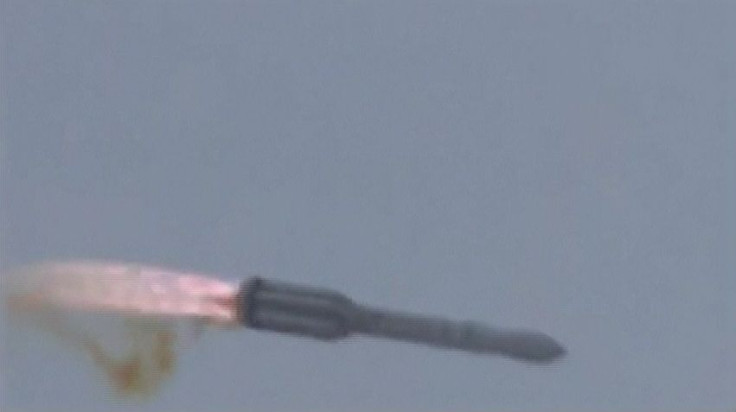Russian Rocket Explodes Shortly After Lift Off Resulting In Loss Of $200 Million Satellites [VIDEO]

On Tuesday, July 2, an unmanned Russian rocket carrying three Russian Glonass-M navigation satellites veered off course shortly after launch from the Baikonur Cosmodrome in Kazakhstan.
The Proton-M class rocket lifted off at 8:38 a.m. local time. Seconds after launch, the rocket spun out of control and crashed into the ground, exploding into a massive fireball. The resulting crash resulted in a cloud of smoke consisting of burning fuel and a large spill of heptyl rocket fuel, also known as unsymmetrical dimethylhydrazine or UDMH.
According to a spokesperson from the Russian Federal Space Agency Roscosmos, the rocket crashed within the Russian launch site.
While no casualties were reported or any immediate threat to nearby settlements was reported, a cloud of smoke and gases from the rocket’s burning fuel rose from the site.
Russian Prime Minster Dimitry Medvedev ordered a government inquiry into the cause of the accident.
While the crash investigation has yet to begin, according to a report from RIA Novosti, Kazakhstan’s Emergencies Ministry claimed an engine failure of the rocket’s first stage was to blame.
This was the second time a Proton-M rocket containing Russian Glonass positioning system satellites has crashed since 2010. The satellites were estimated to be worth about $200 million. According to Reuters, Russia plans to spend $9.1 Billion on Glonass, the Russian response to the U.S. GPS network of satellites.
State-Run Russian Rossiya-24 television broadcasted the launch and the resulting crash. Take a look at the video of the incident above.
© Copyright IBTimes 2024. All rights reserved.












